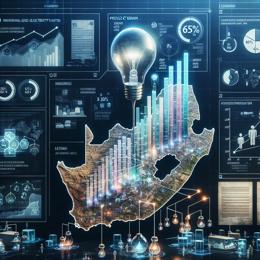Image created by AI
Power Poverty Grips New Zealand: Consumer NZ Reveals Alarming Energy Cost Concerns
New data from Consumer NZ paints a troubling picture of 'power poverty' in New Zealand, a predicament resonating across the nation amidst climbing electricity prices. In an alarming revelation, approximately 140,000 households have been compelled to obtain loans to manage their electricity expenses over the past year. This fiscal burden underscores a broader energy affordability crisis that New Zealanders are grappling with, prompting Consumer NZ, the nation's leading consumer advocacy organization, to sound the alarm.
Campaigns Manager at Consumer NZ, Jessica Walker, conveyed the severity of the issue, noting that "electricity costs loom as a top fiscal challenge for one in three New Zealanders." This sentiment is further corroborated by statistics from the organization’s latest energy survey, shedding light on the financial strains faced by many households in keeping their lights on and homes heated.
The survey's revelations are troubling: more than 360,000 households struggled to pay their energy bills within the last year, with over a quarter of a million adding overdue charges to their already steep power bills due to late payments. Strikingly, 2% of the respondents faced electricity disconnections owing to unpaid bills, underscoring the harsh reality of energy insecurity among New Zealanders.
The implications of such disconnections are significant, with Walker emphasizing the potential risk of consumers being denied service by electricity retailers in the future. The survey indicated that nearly 10% of households have already experienced being turned away by a retailer due to a history of arrears. In the face of rising living costs and colder seasons, this trend towards power poverty is causing widespread concern and despair among residents, with limited options available for those already struggling financially.
New Zealand’s power poverty issue is exacerbated by a combination of factors including the rising cost of living, employment insecurity, and the lack of comprehensive social safety nets capable of addressing such systemic problems. As electricity costs continue to soar, the government and relevant authorities are facing increased pressure to intervene and provide viable solutions that address the sustainability of the energy market, ensuring access to basic utilities for all citizens.
As New Zealanders confront the realities of power poverty, the findings present a clarion call to stakeholders to collaboratively forge pathways to energy affordability and security. Balancing market forces with the needs of the populace remains a priority in the pursuit of equitable energy policies and consumer protections.










